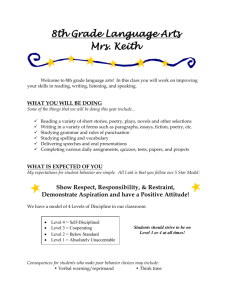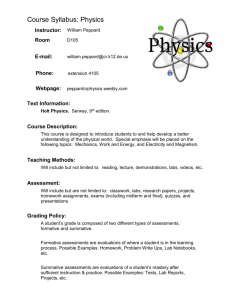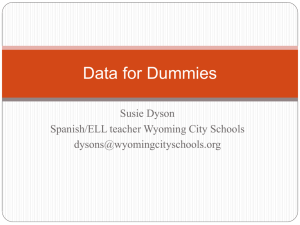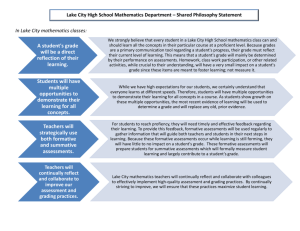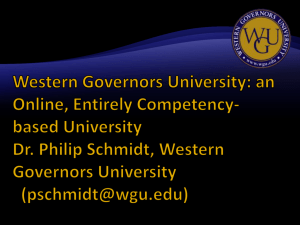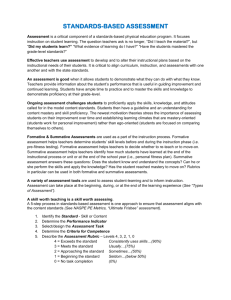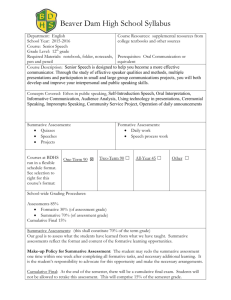English 10 Syllabus 2015 - 2016
advertisement
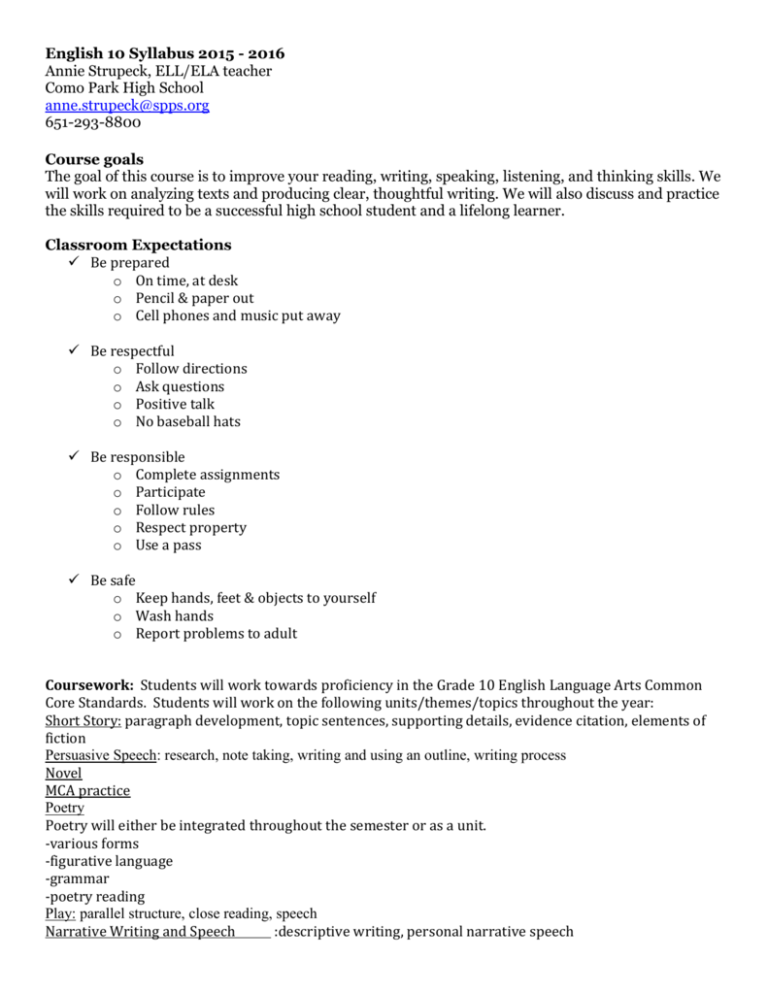
English 10 Syllabus 2015 - 2016 Annie Strupeck, ELL/ELA teacher Como Park High School anne.strupeck@spps.org 651-293-8800 Course goals The goal of this course is to improve your reading, writing, speaking, listening, and thinking skills. We will work on analyzing texts and producing clear, thoughtful writing. We will also discuss and practice the skills required to be a successful high school student and a lifelong learner. Classroom Expectations Be prepared o On time, at desk o Pencil & paper out o Cell phones and music put away Be respectful o Follow directions o Ask questions o Positive talk o No baseball hats Be responsible o Complete assignments o Participate o Follow rules o Respect property o Use a pass Be safe o Keep hands, feet & objects to yourself o Wash hands o Report problems to adult Coursework: Students will work towards proficiency in the Grade 10 English Language Arts Common Core Standards. Students will work on the following units/themes/topics throughout the year: Short Story: paragraph development, topic sentences, supporting details, evidence citation, elements of fiction Persuasive Speech: research, note taking, writing and using an outline, writing process Novel MCA practice Poetry Poetry will either be integrated throughout the semester or as a unit. -various forms -figurative language -grammar -poetry reading Play: parallel structure, close reading, speech Narrative Writing and Speech :descriptive writing, personal narrative speech Grammar Grading Your grade will be determined by your ability to demonstrate the skills of the Common Core Standards for 10th grade English. Grading Scale (%) All classes in the English department adhere to this common grading scale to ensure consistency for all courses. A+ = 98 B = 83 C- = 70 N =0 A = 93 B- = 80 D+ = 68 A- = 90 C+ = 78 D = 63 B+ = 88 C = 73 D- = 60 Formative Assessments (20% of overall grade) Formative assessments take place frequently and help prepare you for summative assessments. Examples of formative assessments include: quick writes, homework, quizzes, class discussion, and think-pair-shares. Missing assessments will be denoted with an “m” in the grade book (m = zero credit in grade book). Summative Assessments (80% of overall grade) Summative assessments demonstrate mastery of learning. Examples of summative assessments include tests, projects, class discussions, presentations, essays, research papers, and other formal papers. Most summative assessments will be scored using rubrics. Missing assessments will be denoted with an “m” in the grade book (m = 0 in grade book). Assessment Grading All assessments are scored on a 1-4 scale based on the rubric and the following criteria. A/4 = Masterful B/3.5 = Skilled C/3 = Proficient D/2.5 = Close N/2 = Far to go N/1 = Needs more time M/0 = Not turned in Late Work When a student has missed a class it is his/her responsibility, immediately upon returning to school, to find out what he/she has missed, including the explanation of new assessment tasks and due dates. Students must also turn in any assessments due during the duration of the absence on the date of their return to school. Parents, guardians, and students should: use parent portal, access teacher websites, email teachers, or check with classmates to find information on missing assignments. Formative Work Students are expected to complete and submit assigned work on time. Work that is late, for any reason, may be accepted with teacher approval and possible point deductions. Summative Work Summative assessments will only be accepted after the due date, if the student seeks out and makes arrangements too meet with the teacher after school to complete the assessment. End of Grading Period All make-up work, late work, and rewrites need to be completed 5 days before the end of the grading period. Final grades will be recorded in quarters that are approximately 9 weeks in length. All grades are final at the end of the quarter and will be posted on an official transcript. Cheating Cheating is the use of any resource not allowed by a teacher to aid in the taking of an exam or in the completion of an assessment to obtain some benefit, credit, or gain. Examples of cheating include, but are not limited to: copying, talking with another person, and/or using electronic devices for help without the teachers permission. Plagiarism Plagiarism is the act of using the language and thoughts of someone else’s without giving them credit and representing it as your own. Consequences for Cheating and Plagiarism All cases of plagiarism will result in a zero and the student may have the opportunity to make up the assignment after school in front of the teacher for partial credit. The grade book will reflect the student has cheated. The student will also be referred to the administrator so the behavior is documented. Resources The ABSC Room is open after school until 4:00 for Homework Help. Students receive a snack and a bus token. I will also be available for after-school help a few times a week until 3:00 as needed, by appointment.

